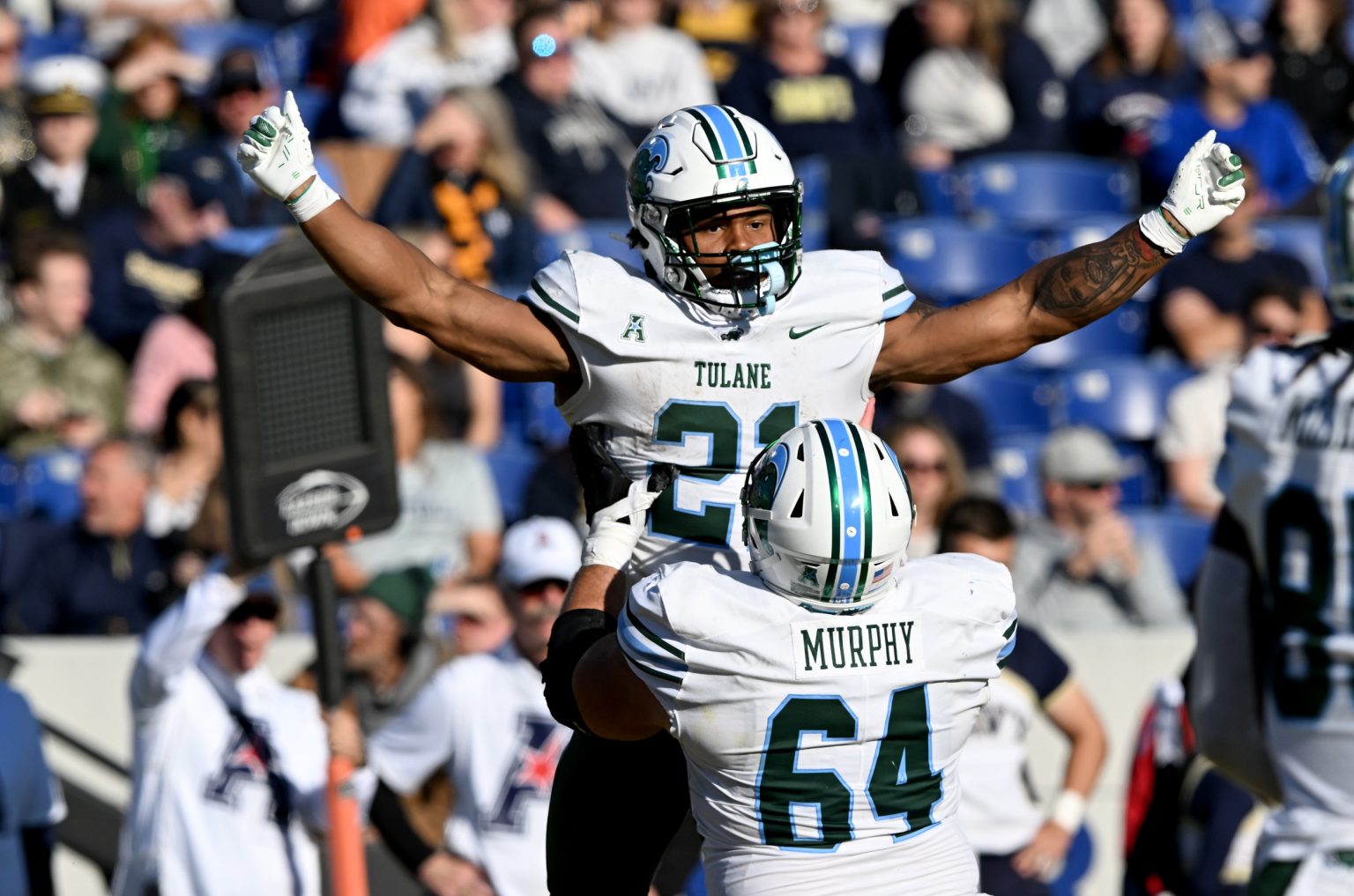Jon Sumrall: A Champion for New Orleans and Rising Star in College Football
Jon Sumrall, Tulane Green Wave’s head coach, made headlines recently for his passionate defense of New Orleans following what he perceived as disrespect from Northwestern University. During a postgame press conference, Sumrall didn’t mince words after Northwestern denied Tulane’s request to wear white uniforms as part of a tribute commemorating the 20th anniversary of Hurricane Katrina. “When you disrespect the city of New Orleans, you’re going to run into it… I’m not trying to be a jerk but don’t disrespect the City of New Orleans,” Sumrall declared with conviction. This moment captured the essence of a coach who, despite his Alabama roots, has fully embraced the culture and history of the community he represents. According to the Times-Picayune’s Jeff Duncan, the uniform choice held special significance—Tulane had been forced to play without helmet decals in their first game after Hurricane Katrina in 2005 against Mississippi State in Shreveport. The “no-decal” look for this anniversary game was meant to honor both the 2005 team and memorialize the devastating storm that transformed the city forever.
Sumrall’s defense of New Orleans reflects a deeper understanding of coaching that extends beyond X’s and O’s. Now in his second season with Tulane, he arrived after building a strong foundation as head coach of the Troy Trojans. His approach demonstrates how the best coaches connect with the communities they serve, understanding that their role transcends the football field. By standing up for New Orleans so publicly, Sumrall showed the kind of leadership that resonates with players, alumni, and fans alike. This moment wasn’t just about uniform colors—it was about respect for a city’s resilience and honoring those who suffered through one of America’s worst natural disasters. The emotional intelligence displayed in this interaction reveals why Sumrall has been able to continue the program’s upward trajectory, building on the solid groundwork laid by his predecessor.
Despite the strong connection Sumrall has forged with New Orleans, predictions about his future suggest his time with the Green Wave may be limited. The Advocate’s Kyle Whitfield observed that Sumrall “likely won’t be in New Orleans next season, assuming Tulane has a good season,” noting that he “gets it, like Willie Fritz, when it comes to football, Tulane and New Orleans.” This observation places Sumrall in the tradition of successful Tulane coaches who have used their achievements in New Orleans as stepping stones to more prominent positions. It’s a bittersweet reality for Green Wave supporters—finding a coach who understands and champions their community so well, only to potentially lose him to a larger program seeking that same magic. This pattern has become all too familiar for programs like Tulane that exist just outside the uppermost echelon of college football’s hierarchy.
The coaching marketplace in college football has transformed dramatically in recent years, with compensation packages reaching unprecedented levels and movement between programs becoming increasingly fluid. As a rising star in the coaching profession, Sumrall finds himself in an enviable position. His combination of on-field success, recruiting acumen, and ability to connect with communities makes him an attractive candidate for programs with deeper pockets and more resources. The upcoming coaching cycle is predicted to feature significant turnover among major conferences, creating opportunities for coaches like Sumrall to make career-advancing moves. While this reality may disappoint Tulane supporters, it also validates the program’s ability to identify and develop coaching talent—a skill that has helped maintain competitiveness despite the challenges of being outside the Power Five conferences.
What makes Sumrall’s potential departure particularly poignant is how quickly and thoroughly he has embraced New Orleans. His fiery defense of the city demonstrates a level of investment that goes beyond professional obligation. For coaches at this level, understanding the unique culture and history of the places they work isn’t just good public relations—it’s essential for building authentic connections with players, recruits, and the broader community. Sumrall seems to innately understand that coaching at Tulane means representing New Orleans in all its complexity, including its triumphs and tragedies. This cultural fluency, combined with his tactical acumen, explains why larger programs might soon come calling with offers too substantial to decline.
While speculation about Sumrall’s future continues, his present impact on Tulane and New Orleans remains significant. His willingness to stand up for the city demonstrates the kind of leadership that builds lasting loyalty, regardless of how long his tenure ultimately lasts. For a program like Tulane, having coaches who understand the institution’s place within the broader community creates a foundation for sustained success that transcends any individual leader. If Sumrall does indeed move on after this season, he will have left an indelible mark on Green Wave football—not just through wins and losses, but through moments like his passionate defense of New Orleans that remind everyone of sport’s power to honor, heal, and unite communities. In a college football landscape increasingly dominated by financial considerations and conference realignments, such authentic connections to place and history become all the more valuable and worth celebrating.


